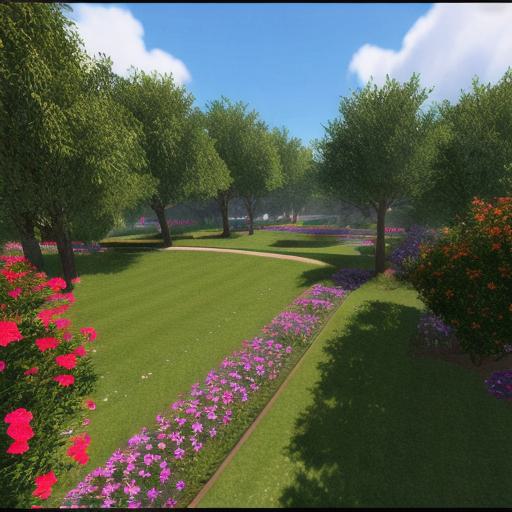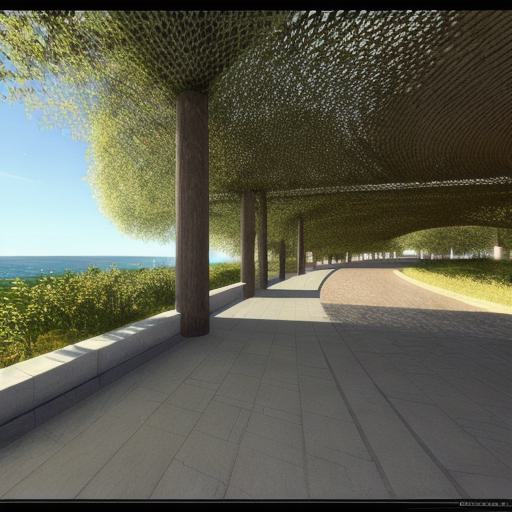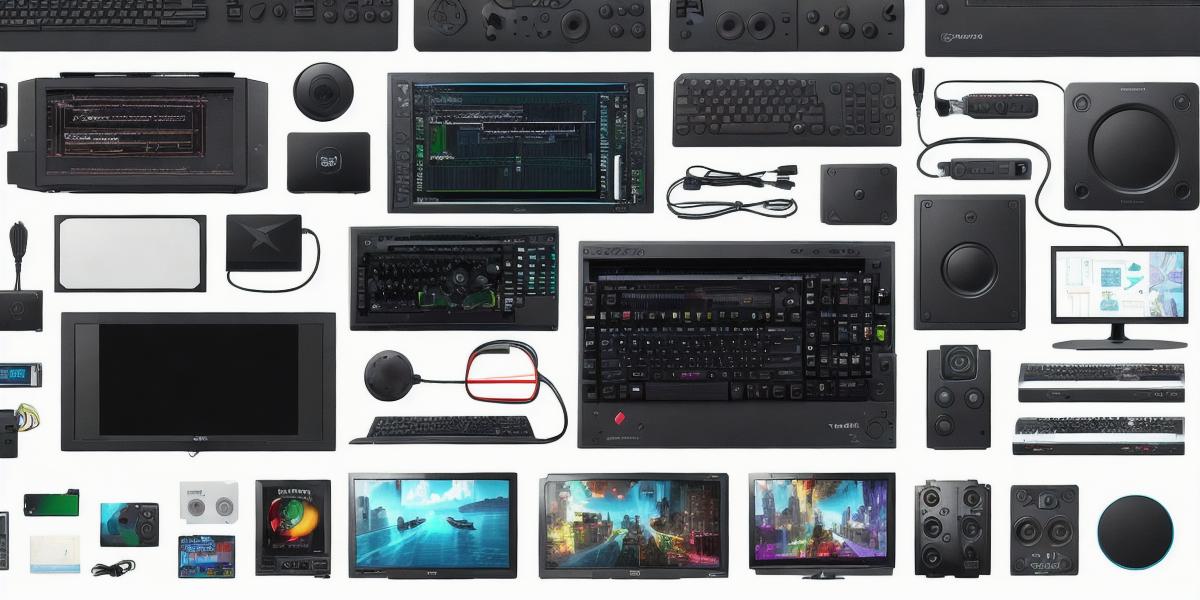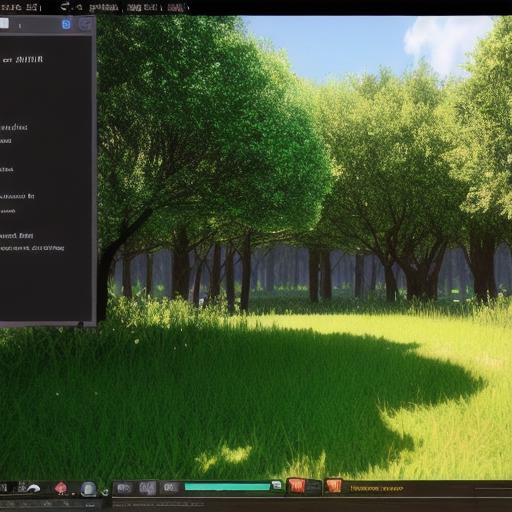Introduction
The world of video game development is a fascinating and ever-evolving landscape, with new tools and technologies constantly emerging to help game creators bring their ideas to life. As the industry continues to grow, so too does the need for skilled game developers, and it’s important to know what resources are available to help you succeed in this exciting field.
In this comprehensive guide, we will explore the various types of game development tools that are available, covering everything from game engines and programming languages to 3D modeling software and sound design tools. We will also discuss the benefits and drawbacks of each tool, as well as provide real-world examples and case studies to help you understand how they can be used effectively in your own game development projects.
Game Engines: The Foundation of Game Development
Game engines are the backbone of any video game, providing developers with a set of tools and technologies that make it easier to create and publish games. These engines come in various forms, ranging from 2D sprite-based engines to more advanced 3D graphics engines that can handle complex physics simulations. Some of the most popular game engines include Unity, Unreal Engine, and Godot.
Unity is a popular choice for beginner game developers due to its user-friendly interface and extensive documentation. It supports both 2D and 3D game development and has a large community of developers who contribute to its open-source libraries. Unity also offers a range of monetization options, including in-app purchases and advertising, making it an attractive option for game developers looking to monetize their creations.
Unreal Engine is another popular game engine that offers advanced features such as real-time rendering and support for virtual reality (VR) development. It has a steeper learning curve than Unity but offers more power and flexibility, making it a preferred choice for experienced game developers working on complex projects.
Godot is an open-source game engine that focuses on simplicity and ease of use. It offers 2D and 3D game development, as well as support for multiple platforms, including Linux, macOS, iOS, Android, and Windows. Godot also has a growing community of developers who contribute to its extensive libraries and tools.
Programming Languages: The Powerhouse of Game Development
While game engines provide a range of tools and technologies, programming languages are still an essential part of game development. These languages allow developers to write code that can be executed by the game engine or other software platforms, giving them greater control over the game’s behavior and functionality. Some of the most popular programming languages used in game development include C++, C, and Python.
C++ is a high-performance language that is widely used in the game development industry due to its ability to optimize code for speed and efficiency. It has a steep learning curve but offers more control over the game’s performance and can be used to write low-level code for tasks such as graphics rendering and physics simulation.
C is another popular language used in game development, particularly with Unity. It is an object-oriented programming language that is easy to learn and use, with extensive documentation and community support available. C also offers a range of built-in features and libraries that can be used to simplify game development tasks.
Python is a versatile and powerful language that is widely used in game development due to its ease of use and extensibility. It has a growing community of developers who contribute to its extensive libraries and frameworks, making it an attractive option for game developers looking to build prototypes quickly or develop complex systems.
3D Modeling Software: Bringing Games to Life
3D modeling software is used to create the visual assets that make up a video game, including characters, environments, and objects. These tools come in various forms, ranging from simple 2D sprite editors to more advanced 3D modeling programs that can handle complex rigging and animation tasks. Some of the most popular 3D modeling software used in game development include Blender, Maya, and 3DS Max.
Blender is a free and open-source 3D modeling software that offers a range of features and tools for creating 3D models, textures, and animations. It has a large community of developers who contribute to its extensive libraries and add-ons, making it an attractive option for game developers looking to create high-quality visual assets on a budget.
Maya is a professional 3D modeling software that offers advanced features such as dynamic topology, facial animation, and advanced lighting effects. It has a steep learning curve but offers more power and flexibility than other 3D modeling software, making it a preferred choice for experienced game developers working on complex projects.
3DS Max is another professional 3D modeling software that offers advanced features such as dynamic topology, facial animation, and advanced lighting effects. It has a smaller community than Maya but offers more user-friendly tools and interfaces, making it an attractive option for game developers who prefer a more streamlined workflow.
Sound Design Tools: The Soundtrack of Game Development

Sound design is an essential part of video game development, providing developers with the audio elements that bring games to life. These tools include audio editing software, sound effects libraries, and music composition software. Some of the most popular sound design tools used in game development include Audacity, Pro Tools, and Ableton Live.
Audacity is a free and open-source audio editing software that can be used to edit and mix audio files for use in games. It has a large community of developers who contribute to its extensive libraries and plugins, making it an attractive option for game developers looking to create high-quality sound effects on a budget.
Pro Tools is a professional audio editing software that offers advanced features such as dynamic compression, noise reduction, and spectral analysis. It has a steep learning curve but offers more power and flexibility than other audio editing software, making it a preferred choice for experienced game developers working on complex projects.
Ableton Live is another professional music composition software that can be used to create original soundtracks for games. It has a smaller community than Pro Tools but offers more user-friendly tools and interfaces, making it an attractive option for game developers who prefer a more streamlined workflow.
FAQs
- What is the difference between 2D and 3D game development?
- 2D game development involves creating games that use 2D graphics, while 3D game development involves creating games that use 3D models and graphics.
- Which programming language is best for game development?
- The choice of programming language depends on the specific needs and requirements of the game project. C++, C, and Python are some of the most popular languages used in game development.
- What is the purpose of a game engine?
- A game engine provides developers with a set of tools and technologies that make it easier to create and publish games. These engines can handle tasks such as graphics rendering, physics simulation, and AI programming.
- Which 3D modeling software is best for game development?
- The choice of 3D modeling software depends on the specific needs and requirements of the project. Blender, Maya, and 3DS Max are some of the most popular tools used in game development.
- What is sound design in game development?
- Sound design involves creating the audio elements that bring games to life, including sound effects and music compositions. These elements help to enhance the overall experience of the game by providing a more immersive and engaging environment.
Summary

Game development tools come in various forms, ranging from simple 2D sprite editors to complex 3D modeling programs that can handle advanced rigging and animation tasks. Choosing the right tools for a specific project requires careful consideration of the needs and requirements of the game, as well as the experience and skills of the development team. By selecting the right tools and technologies, game developers can create high-quality games that engage and entertain players around the world.



